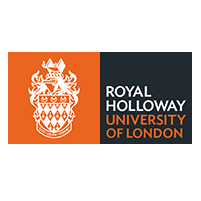
About the course
Course content
This degree, offered by the Department of Computer Science and the Department of Economics, allows you to specialise in modern quantitative finance and computational methods for financial modelling, which are demanded for jobs in asset structuring, product pricing as well as risk management.
Skills that you will acquire include the ability to:
- analyse, critically evaluate, and apply methods of computational finance to practical problems, including pricing of derivatives and risk assessment
- analyse and critically evaluate methods and general principles of computational finance and their applicability to specific problems
- work with methods and techniques such as clustering, regression, support vector machines, boosting, decision trees, and neural networks
- analyse and critically evaluate applicability of machine learning algorithms to problems in finance
- implement methods of computational finance and machine learning using object-oriented programming languages and modern data management systems
- work with software packages such as MATLAB and R
- work with Relational Database Systems and SQL
You will be taught by world-leading academics. Research in Machine Learning at Royal Holloway started in the 1990’s, at which time V. Vapnik and A. Chervonenkis (the inventors of Support Vector Machines) were both professors here. We have developed both fundamental theory and practical algorithms that have fed into the analytics methods and techniques that are in use today. Current researchers include Alexander Gammerman and Vladimir Vovk – the inventors of conformal predictors theory, a radically new method of estimating the accuracy of each prediction as it is made – and Chris Watkins, originator of reinforcement learning who developed ‘Q-learning’, a work that is fundamental to planning and control.
- Study in two highly-regarded departments, respectively ranked 11th and 8th in the UK for research quality (Research Excellence Framework 2014).
- Benefit from strong industry ties, with close proximity to ‘England’s Silicon Valley’.
- Graduate with a Masters degree with excellent graduate employability prospects.
- Tailor your learning with a wide range of engaging optional modules.
- Choose from a one-year programme structure or add an optional year in industry.
Course structure
Core modules
- Data Analysis
- Programming for Data Analysis
- Database Systems
- Foundations of Finance
- Investment and Portfolio Management
- Individual Project
Optional modules
In addition to these mandatory course units there are a number of optional course units available during your degree studies. The following is a selection of optional course units that are likely to be available. Please note that although the College will keep changes to a minimum, new units may be offered or existing units may be withdrawn, for example, in response to a change in staff. Applicants will be informed if any significant changes need to be made.
Please note that some of these modules may have pre-requisites. During Welcome Week, your personal advisor will help you choose the electives that best suit your background and career ambitions, as well as your timetable.
- Machine Learning
- Computation with Data
- Methods of Computational Finance
- Software Verification
- Advanced Data Communications
- Fundamentals of Digital Sound and Music
- Intelligent Agents and Multi-Agent Systems
- Semantic Web
- Internet and Web Technologies
- On-line Machine Learning
- Large-Scale Data Storage and Processing
- Service-Oriented Computing, Technology and Management
- Business Intelligence
- Business Intelligence Systems, Infrastructures and Technologies.
- Computational Optimisation
- Methods of Bioinformatics
- Visualisation and Exploratory Analysis
- Corporate Finance
- Financial Econometrics
- Fixed Income Securities and Derivatives
- Microeconometrics
- Decision Theory and Behaviour
- The Economics of Banking
- Private Equity
- Inference
- Applied Probability
- Security Technologies
- Introduction to Cryptography and Security Mechanisms
- Network Security
- Computer Security (Operating Systems)
- Security Management
- Smart Cards, RFIDs and Embedded Systems Security
- Digital Forensics
- Security Testing - Theory and Practice
- Software Security
- Cyber Security
- Database Security
Teaching & assessment
Teaching is organised in terms of 11 weeks each. Examinations are taken in April/May of each academic year, except for Data Analysis for which the exam is in January. The individual project is taken over 12 weeks during the Summer.
A weekly seminar series runs in parallel with the academic programme, which includes talks by professionals in a variety of application areas as well as workshops that will train you to find a placement or a job and lead a successful career.
Assessment is carried out by a variety of methods including coursework, small group projects, and examinations, the proportions of which vary according to the nature of the modules.
This degree can be taken part-time - visit our website for details
Your future career
Demand for data scientists is buoyant, in the UK and worldwide, with salaries much higher than other IT professions and at least double the UK average full time wage. All our graduates found jobs at the end of (if not during) their studies.
We bring several companies to our campus throughout the year, both for fairs and for delivering advanced topics seminars, which are an excellent opportunity to learn about what they do and discuss possible placements or jobs. Together with the University’s Careers Service, we offer you workshops and one-to-one coaching that prepare you to find a placement or a job and lead a successful career.
- 90% of Royal Holloway graduates in work or further education within six months of graduating.
- Strong industry ties help to provide placement and networking opportunities.
- On-site Careers Service provides help and support for students.